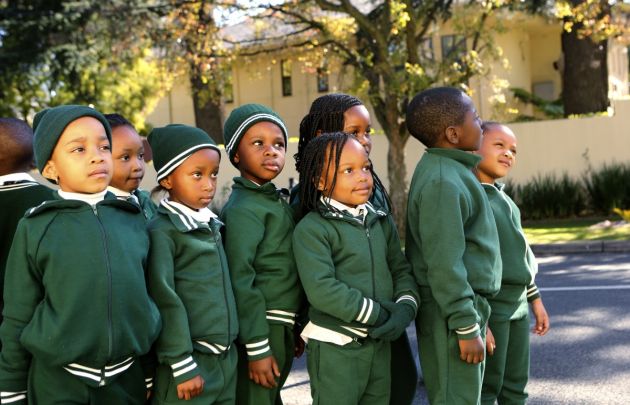Keep Christian teaching in schools say South African political parties

Some opposition political parties in South Africa are saying Christian values should remain in public schools because the country's constitution promotes freedom of religion.
African Christian Democratic Party President Rev. Kenneth Meshoe said the party was appalled by calls for Christian values to be removed in schools, the South African Press Association (SAPA) reports.
"The ACDP will oppose attempts to stop Christian values from being taught in schools as our Constitution promotes the freedom of religion and not freedom from religion," Meshoe said in a statement.
Freedom Front Plus spokesperson Anton Alberts said the party supported efforts to oppose a planned court case directed at prohibiting six schools from exercising Christian values.
Alberts said the reaction from church circles and social media was proof the court action by a group calling itself OGOD, with its chairperson Hans Pietersen, is seen as a "witch-hunt on Christians."
He said the Organisation for Religion Education and Democracy's (OGOD) court case was "incorrectly motivated" and aimed at replacing one philosophy with another.
"Freedom of religion is of cardinal importance in South Africa. It is part of any mature democracy," he said.
Alberts noted that a large number of public schools have the principle of parental input, management and democracy is in place."
"Therefore, learners who do not wish to be part of any religious actions should have the right to withdraw from it."
About 80 percent of South Africa's population of 55 million are Christians with Muslims accounting for 1.5 per cent and Hindus 1.3 per cent.
OGOD said it was taking six public schools and the ministers of basic education and correctional services to court for allowing "suppression of scientific and cultural knowledge", religious coercion and abuse of pupils' rights in public schools.
It wanted to "eradicate religious elitism" with its court action.
"The actions of the some public schools are in breach of the national policy on religion and education, and or unconstitutional, for such public schools," it said in a statement.
"OGOD defends the constitutional rights of learners to freedom of religion and conscience, and their right of access to knowledge. Many South African public schools abuse these rights."
The organization listed over 60 "abuses of rights". These include requiring pupils to subscribe to a specific religion, referring to a deity in their school badges, and rendering religious instruction.
Also listed were handing out religious booklets or textbooks, issuing prefects with T-shirts with religious symbols on them, opening school assemblies with sermons or prayer, and requiring pupils to pray.
"This will be South Africa's watershed case for religion in public schools," said OGOD's Pietersen.
The six schools are Hoërskool Linden in Johannesburg, Laerskool Randhart in Alberton, Laerskool Baanbreker in Boksburg, Laerskool Garsfontein in Pretoria and Hoërskool Oudtshoorn and Langenhoven Gimnasium both in Oudtshoorn.
Pietersen said the schools and departments had 20 business days to respond to its papers and that OGOD should know the way forward by the end of September.
"OGOD is not against a specific language, it just happens to be six Afrikaans [language] schools where parents have approached us," he said.
"The object is to get equality and freedom. We want the schools to adhere to the national policy of religion. There is nothing in the policy that I do not agree with."
He said the organization had similar complaints from parents in the past, but finally found enough parents with enough complaints to make a case.